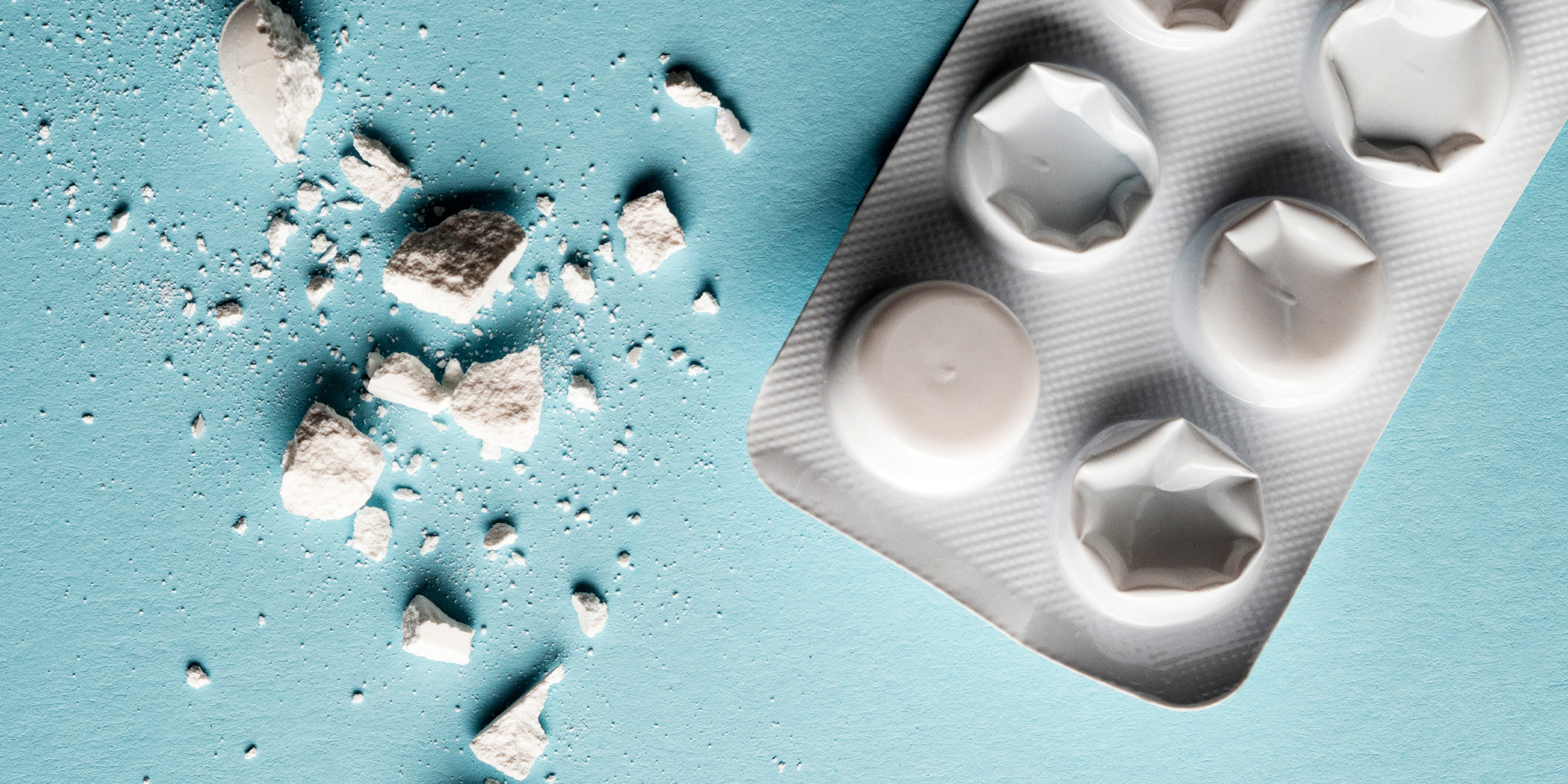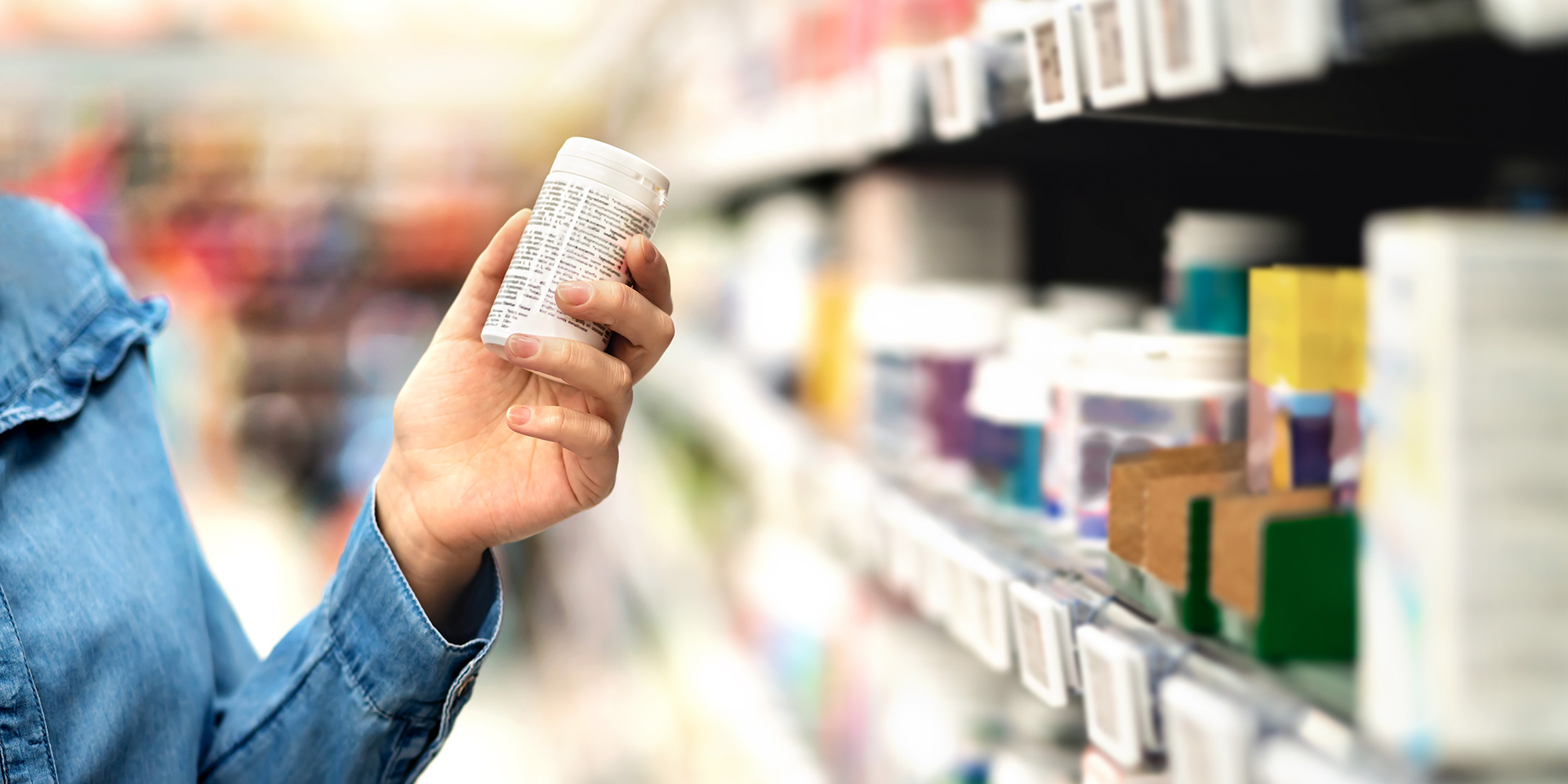
Healthy living
Use our expert advice and recommendations to live your best life every day.
Get started
If you take a vitamin or supplement, you might not have given much thought to what is actually inside the pill you swallow.
But, it's hard to ignore the marketing claims as a swathe of new supplement brands position themselves as the additive-free alternative to traditional tablets. So does it make a difference and should you care?
We explain what extras you might find in vitamin and mineral supplements, why they're used, and whether you need to worry about them.
Eat well, live better, stay healthy – sign up for our free monthly Food & Health newsletter for the latest insights delivered straight to your inbox

Bulkiers, fillers and additives are generally harmless and often fulfil a useful role in helping deliver active ingredients safely and effectively, much like they do for medicines.
This may be delivering the active ingredient to you in the best possible state, in a form that is easy to swallow or has a decent shelf life.
Bulking agents may be used because the active ingredient in a pill or tablet is minuscule. In order to make up a pill that is a practical, helpful size for you to take, bulkers are used. Otherwise you could be attempting to take something the size of a few grains of sand, and taking the correct dosage would be very difficult.
Fillers and binders are ingredients used to amend or improve the consistency of the final product. Some supplements may require ‘binders’ that hold the various ingredients together in a stable form, without which your tablet would crumble and fall apart. Others are used to prolong the shelf life of the product.
Finally, additives are used to add colour, flavour or texture. For example, gummy vitamins may have fruity flavours to make them taste more appealing.
So, bulkers and fillers are inactive ingredients that may be added to a product for a variety of legitimate reasons. However, some supplements may use more than necessary.
This can mean there is less space for the ingredients you actually want, or that you're ingesting more extras than you bargained for, particularly if you take multiple supplements.
Shefalee Loth, Which? nutritionist and principal researcher, says:

'Some fillers have valid roles in supplements - they can create a time-release effect to ensure you get the best from the supplement, and preserve the nutrients so that you get what you're paying for. In some cases, when nutrients are present in small amounts, fillers can bulk the product so that it's a reasonable size.
'However, in some cases this is taken too far. We found supplements that contained significantly more fillers than active ingredients. None of the additives we've seen so far are harmful but some, such as PVA and talc, aren't things that most people would knowingly choose to ingest.'
In the UK, all ingredients used in both pharmaceutical products and food are subject to regulation and must be safe for consumption and not misleadingly labelled.
However, some supplements may contain products you'd prefer to avoid. For example, some could contain ingredients that might not be suitable for dietary or health reasons, such as pork gelatin.
Best multivitamin reviews and best magnesium supplements - see our independent expert reviews, which rate each product for the amount of fillers and additives, as well as dose and bioavailability

These are some of the most common fillers, bulkers and additives used in supplements, why they are used and what you need to know about them:
These help to hold ingredients together.
These help prevent ingredients from clumping and sticking to machinery in the manufacturing process. Common ingredients include:
These are used to enhance the appearance or taste of supplements.

Use our expert advice and recommendations to live your best life every day.
Get started
Don't feel like you have to buy the priciest supplements around because they claim to be more pure than rivals. Most inactive ingredients are harmless, particularly in the small quantities ingested as part of a daily pill or supplement.
However, we've found that some products do contain substantially more than others, which may mean you're paying for cheap fillers over active ingredients, and you may want to avoid certain extras - particularly if you're following specific dietary guidelines or have allergies.
We recommend exercising caution buying from social media, online marketplaces or unknown brands. Opt for established retailers and brands, and do additional checks on brands you aren't familiar with.
Check the dose against NHS guidance to see whether or not it's excessive. Companies love to market 'high strength' products as a benefit, but more is not always better or indeed necessary when it comes to supplements, and in some cases it can be potentially harmful.
Supplement prices can vary considerably, with some formats such as sprays and gummies generally costing more than tablets.
Make sure you compare the cost per dose, because if it advises taking, say, two - or in some cases as many as four tablets - per day this will mean the cost per daily dose is much more than you might expect.
How to supplement safely - more insight into the pitfalls to be aware of